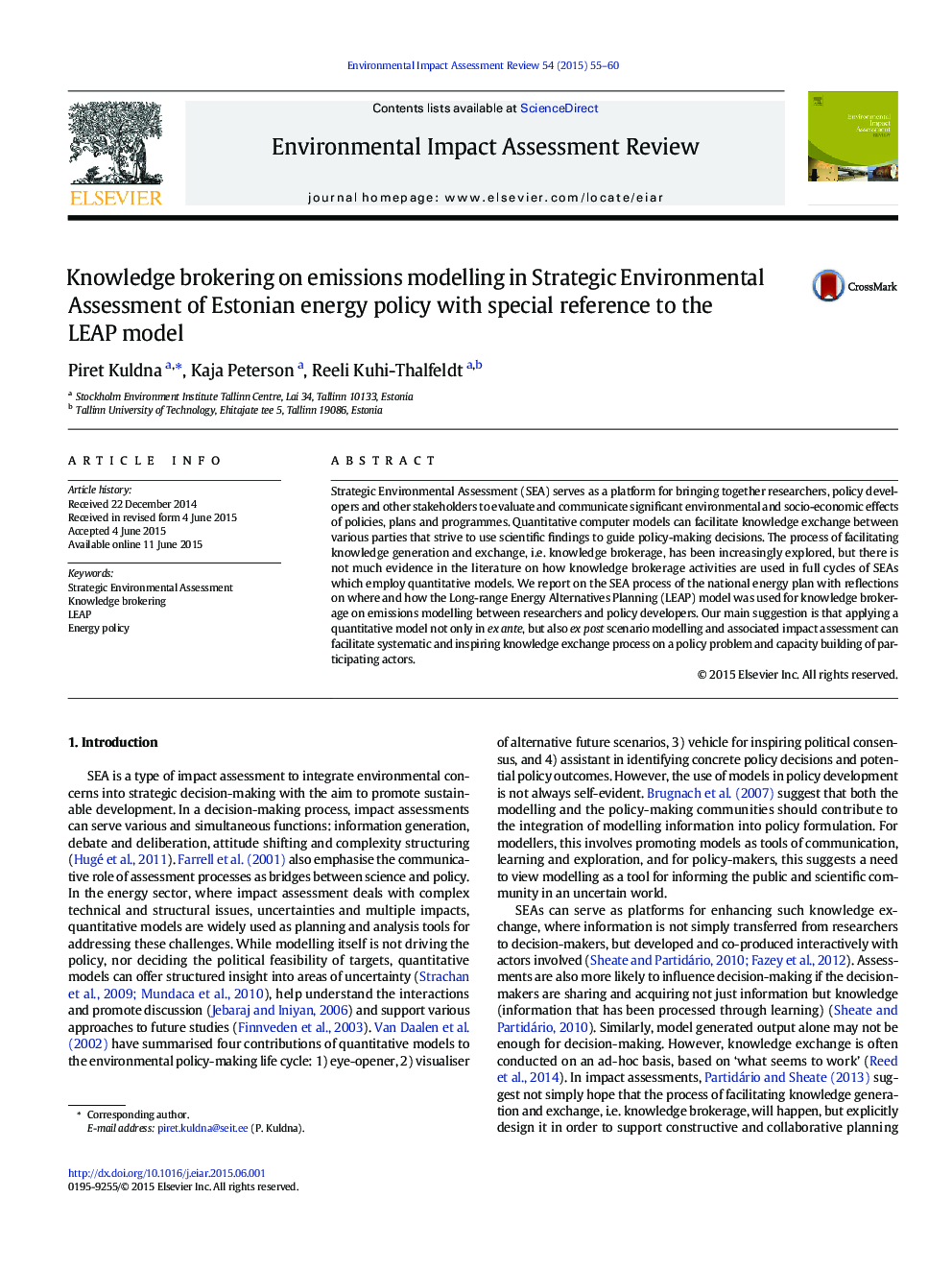| Article ID | Journal | Published Year | Pages | File Type |
|---|---|---|---|---|
| 7465236 | Environmental Impact Assessment Review | 2015 | 6 Pages |
Abstract
Strategic Environmental Assessment (SEA) serves as a platform for bringing together researchers, policy developers and other stakeholders to evaluate and communicate significant environmental and socio-economic effects of policies, plans and programmes. Quantitative computer models can facilitate knowledge exchange between various parties that strive to use scientific findings to guide policy-making decisions. The process of facilitating knowledge generation and exchange, i.e. knowledge brokerage, has been increasingly explored, but there is not much evidence in the literature on how knowledge brokerage activities are used in full cycles of SEAs which employ quantitative models. We report on the SEA process of the national energy plan with reflections on where and how the Long-range Energy Alternatives Planning (LEAP) model was used for knowledge brokerage on emissions modelling between researchers and policy developers. Our main suggestion is that applying a quantitative model not only in ex ante, but also ex post scenario modelling and associated impact assessment can facilitate systematic and inspiring knowledge exchange process on a policy problem and capacity building of participating actors.
Related Topics
Physical Sciences and Engineering
Energy
Renewable Energy, Sustainability and the Environment
Authors
Piret Kuldna, Kaja Peterson, Reeli Kuhi-Thalfeldt,
